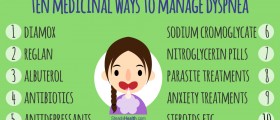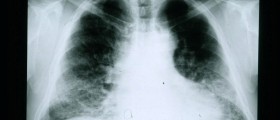
Altitude sickness affects some people when they travel to places at high altitudes, like ski resorts, national parks, mountain tops and similar. This sickness can make the trip much less pleasurable, which is why it is good to learn how to prevent it.
About altitude sickness
Altitude sickness is a term used to describe a number of symptoms which occur at certain altitudes. They are not the same for all. Some people never suffer from it, while some will exhibit the symptoms at 4,000 feet, while with most people, altitude sickness starts at 8,000 feet.
This sickness occurs because of the lower level of oxygen the body gets from the air. Since the barometric pressure decreases with altitude, every breath taken at higher altitudes has fewer oxygen molecules compared to the same breath taken at lower altitudes.
As the body adjusts to less oxygen, the respiration and pulmonary artery pressures increase, and the body produces more red blood cells, which carry the oxygen.
This causes different symptoms, and the most common ones are headache, nausea, vomiting, dizziness, confusion, lightheadedness, loss of appetite, insomnia, fast breathing and rapid heart rate.
As mentioned above, the symptoms can vary from person to person. Some have only short-term and mild symptoms, while others feel very sick for several days, until the body adapts itself to the new altitude.
How to prevent altitude sickness
The symptoms of altitude sickness appear gradually, and it is important to not ascend to even higher altitudes if they appear. This way potential complications can be avoided. In case the symptoms persist or become worse in the following days, it is best to turn around and go back to lower altitudes.
Upon arrival at a higher altitude, it is recommended to take it easy and try not to expose the body to too much strain. Resting or taking a nap can help. If altitude sickness occurs on a ski trip, the person suffering from it should probably stay at the hotel the first day, instead of running straight to the ski slope.
Since acclimatization is often accompanied by fluid loss, it is very important to stay hydrated by drinking plenty of water.
People who suffer from altitude sickness should avoid alcohol and cigarettes, and the same goes for sleeping pills, antidepressants, barbiturates and similar drugs.
People who climb high altitudes, for example on a mountain hiking trip, can benefit from prescription medications like Acetazolamide and dexamethasone.
Breathlessness, confusion, difficulty walking or talking and lethargy may indicate pulmonary or cerebral edema and if they occur, it is essential to move to lower altitudes and to see a doctor immediately.

















Your thoughts on this
Loading...